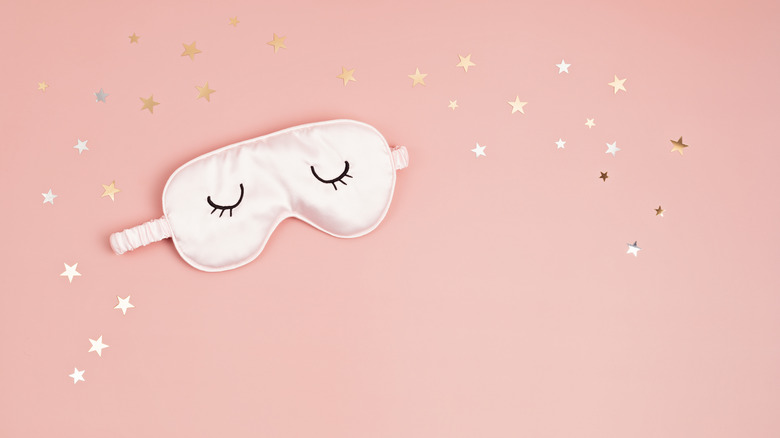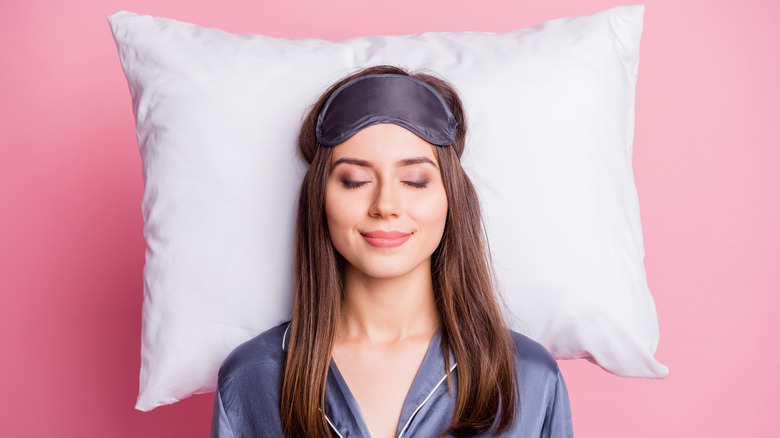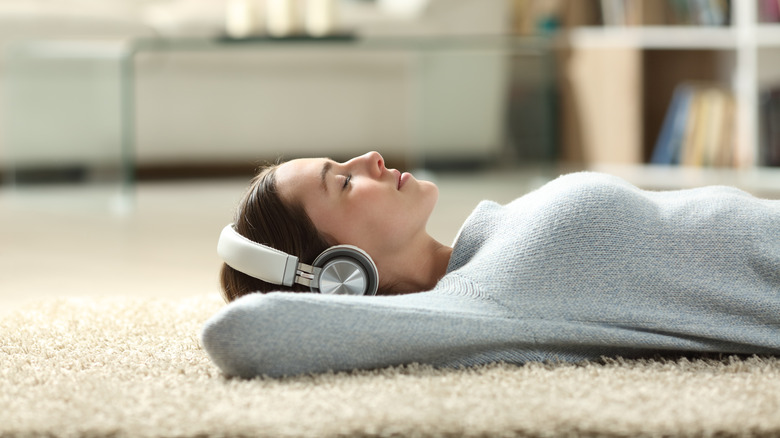Sleep Tips From Olympians That Will Keep You Snoozing All Night
Since childhood, our parents have stressed the importance of a good night's sleep. But now, as an adult, that doesn't always happen. Your morning routine consists of hitting the snooze button at least twice before you're fully awake. You spend your nights acknowledging that you need better sleep habits, but stay up late anyway because you have a serious case of FOMO and can't stop doomscrolling.
We know from experience that it's hard to function when you're sleep deprived. Developing healthy sleeping habits takes time, consistency, and trial and error. If you're stuck finding a bedtime ritual that works for you and leaves you feeling well rested, look to Olympic athletes for advice. Athletes take sleeping very seriously. Good Morning America reports that the U.S. Olympics team recruited Dr. Jeffrey Durmer, Chief Medical Officer of Nox Health and a neuroscientist, as a sleep consultant to help their athletes develop positive sleep patterns that improve their performance.
Dr. Durmer recommends limiting screen-time, slowing down your routine and doing something that helps you unwind like stretching or reading a book before bed. A boost in creativity and reduced stress levels are just two of many benefits of bedtime reading, per Lifehack. Here are more sleep tips from Olympians for when you're ready to hit the sheets.
How to sleep like an Olympian
When you're trying to design the perfect sleep routine, developing a healthy sleep schedule can go a long way. In a July 2016 interview with Cosmopolitan, Olympic royalty Gabby Douglas revealed her own nighttime routine. After a long day, she sets aside time to meditate before getting ready for bed. "I curled up in my bed to meditate, which helps me learn to clear my mind and puts me in a good place mentally and spiritually," she explained. By 9 p.m., Douglas checks in with her family right before sleeping. "With my mind clear, it was easy for me to go to sleep. I usually wake up eight hours later feeling very refreshed," she added.
For better sleep hygiene, avoiding common distractions is necessary. According to Outside, 12-time Olympic medalist Natalie Coughlin relies on earplugs and doesn't sleep with her dogs in bed. Though it was a difficult decision, she admitted that they "were hurting the quality of sleep I got".
More best sleep practices
Business Insider asked more Olympic athletes to share their sleep tips. Alpine ski racer Travis Ganong advised getting at least eight hours of sleep, and if that's not possible, sneaking in naps during the day. "A good night's sleep is mandatory," he explained. "No questions about that. But when you're experiencing jet lag, good sleep sometimes isn't an option. In that case you have to prorate the best you can and just deal with it. That's why I enjoy taking short naps so much."
Four-time Olympic skier Kikkan Randall agreed about the power of a good nap, and added that she prefers longer naps — she sometimes naps for three or four hours. "When I get a good night of sleep, I wake up with really good energy and a positive outlook," she shared. "It gets me excited to show up at training and I'm able to focus well. If I don't get a good night's sleep, I feel it in the morning and little things can start to bug me."


